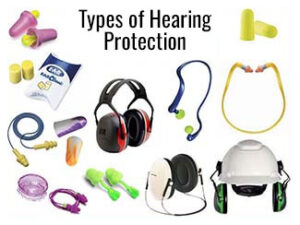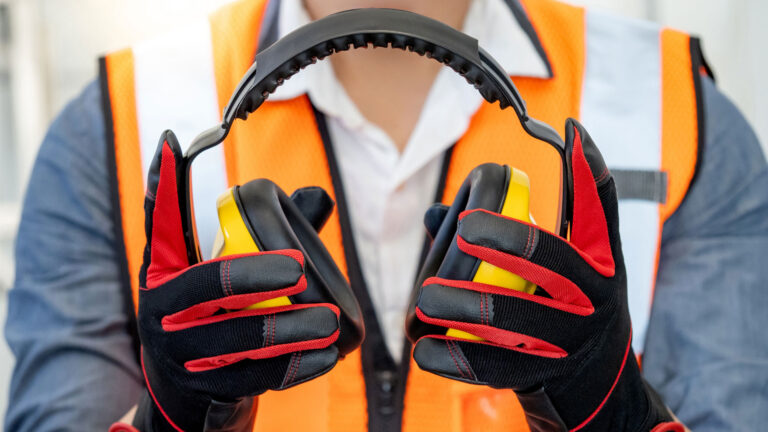Hearing Protection Safety in Construction:
At Patriot General Engineering, safety isn’t just a policy—it’s a commitment to every team member who steps onto a job site. One of the most overlooked yet critical aspects of construction safety is hearing protection. Every day, our crews operate in high-noise environments where exposure to hazardous sound levels can result in permanent hearing loss, decreased productivity, and even job site accidents. The good news? Hearing loss is preventable.
The Real Risk of Hearing Loss
Exposure to high decibel levels—common in construction—can cause permanent and irreversible hearing loss. Whether it’s the roar of a bulldozer or the hammering of a jackhammer, damage can happen gradually over time or in an instant with a single loud blast. Many don’t notice the damage until it’s too late.
Some workers may experience temporary hearing loss or conditions like tinnitus (a persistent ringing in the ears), but even these symptoms can signal long-term problems ahead. As safety professionals, it’s our responsibility to understand the risks and take action before damage occurs.
More Than Just Hearing: Why It Matters
1. Communication and Accidents
Communication is the backbone of a safe construction site. Workers need to hear instructions, alerts, and warnings clearly. Loud environments impair speech recognition, making it harder to respond quickly to potential hazards—ultimately increasing the risk of accidents and injuries.
2. Social Isolation
Hearing damage doesn’t clock out at the end of the workday. It can lead to social withdrawal, difficulty engaging in conversations with family and friends, and a decline in overall quality of life.
3. Decreased Productivity
Noise is more than a nuisance—it’s a productivity killer. Constant exposure can distract workers, reduce concentration, and lower the quality of work. In an industry that demands attention to detail, focus is non-negotiable.
Common Sources of Hazardous Noise on Job Sites
From heavy machinery to handheld power tools, construction sites are inherently loud. Some of the most common culprits include:
Trucks
Cranes
Forklifts
Graders
Bulldozers
Excavators
Compactors
Electric saws
Cement mixers
Welding machines
Jackhammers and sledgehammers

Nine Ways to Protect Hearing on the Job
To ensure every worker goes home with their hearing intact, here are nine practical steps to implement:
1) Know the Limit – Understand acceptable noise exposure levels and monitor site decibel levels regularly.
2) Use Appropriate Tools and Equipment – Opt for newer or quieter models designed to reduce sound output.
3) Establish Safe Distances – Isolate high-noise activities from the main work area when possible.
4) Plan Ahead – Schedule noisy tasks during times that minimize disruption to others.
5) Maintain Your Equipment – Well-maintained machines are usually quieter and safer.
6) Conduct Regular Hearing Screenings – Early detection can prevent long-term damage.
7) Create a Hearing Conservation Program – A formal plan ensures consistent enforcement and education.
8) Eliminate or Substitute Ototoxic Chemicals – Reduce exposure to chemicals that can harm hearing.
9) Train Your Workers – Provide ongoing education about the importance of hearing protection and how to use protective equipment properly.
At Patriot General Engineering, Safety Means Prevention
We believe protecting hearing is just as important as any other form of PPE. By prioritizing education, planning, and proper protective equipment, we’re not just preventing hearing loss—we’re promoting a safer, more connected, and more productive workforce.
Because when it comes to hearing safety, an ounce of prevention is worth a lifetime of sound.
Patriot Safety Team:
Todd Vance – 619-772-0402
Adrian Jernigan – 619-951-6783
Matt Richardson – 619-707-1530





